Renewing an IT contract can feel like a daunting task, but it doesn't have to be! Whether you're looking to renegotiate terms or simply ensure that your needs are met, understanding the key components can make a world of difference. It's all about open communication and clearly defining expectations on both sides. If you're ready to dive into the nitty-gritty of IT contract renewal negotiations, keep reading for some helpful tips and insights!

Clear Objective Statement
Objective of the IT contract renewal negotiation centers on securing a comprehensive agreement that enhances service delivery, ensures competitive pricing, and reinforces cyber resilience. Identifying key performance indicators (KPIs), such as uptime guarantees above 99.9% and response times under one hour for critical issues, establishes a solid framework for improved accountability. Budget considerations aim to maintain cost-effective solutions while investing in emerging technologies, like artificial intelligence and machine learning, to streamline operations. Engaging in collaborative discussions with the vendor, focusing on mutual benefits and long-term partnership strategies, is essential for fostering innovation and sustaining IT infrastructure.
Detailed Contractual Terms
Negotiating IT contract renewals involves careful consideration of key contractual terms to ensure alignment with organizational goals and technological needs. Key components include service level agreements (SLAs) defining performance metrics such as uptime percentages and response times; pricing structures outlining fixed or variable costs, including potential discounts for long-term commitments; and confidentiality provisions safeguarding sensitive data and intellectual property. Additionally, termination clauses must specify conditions under which either party can end the contract, often influenced by compliance with regulations such as GDPR (General Data Protection Regulation) in the EU. Furthermore, indemnification terms protect against legal liabilities arising from third-party claims related to the services provided. These details create a framework that enhances accountability and performance while minimizing risks within the IT service delivery landscape.
Value Proposition Highlight
Renewing an IT contract provides significant value for both parties, especially in a rapidly evolving tech landscape. Organizations can leverage innovative solutions, such as cloud computing platforms like Amazon Web Services (AWS) or Microsoft Azure, to enhance operational efficiency. By negotiating terms, companies can secure cost savings through bulk licensing agreements for essential software like Microsoft Office 365 or Adobe Creative Cloud, ensuring access to the latest features and security updates. Additionally, aligning contract duration with fiscal planning cycles can create budget predictability, helping finance teams manage resources effectively. Establishing service level agreements (SLAs) can further enhance accountability and performance, ensuring that critical systems remain operational. Support options, including 24/7 help desk access, can minimize downtime and bolster productivity across departments. Ultimately, a well-negotiated contract renewal fosters a synergistic partnership, positioning both parties for success in the competitive technology sector.
Deadline for Response
Negotiating an IT contract renewal requires careful consideration of deadlines and response times. Typically, a notice period for contract renewal negotiations ranges from 30 to 90 days before the existing agreement's expiration date. Companies often specify a deadline for response within the negotiation letter to facilitate timely decision-making. This deadline may align with the fiscal calendar, ensuring that budget allocations for the new contract year are accurately planned. Providing an explicit deadline, such as December 31st for contracts expiring on January 31st, can help both parties manage expectations and resources effectively, while maintaining the professional relationship throughout the negotiation process.
Contact Information for Follow-up
An effective approach to IT contract renewal negotiation involves clear communication of contact information for follow-up discussions. Key details include the names and titles of primary contacts from both parties, such as the IT Manager, John Smith from Tech Solutions LLC, and the Procurement Officer, Alice Johnson from Client Services Inc. It's beneficial to provide direct phone numbers, such as John's at (555) 123-4567 and Alice's at (555) 987-6543, alongside email addresses, enabling timely correspondence. Additionally, including office hours facilitates planning for discussions, ensuring both parties are prepared to address specifics regarding contract terms, deliverables, and pricing structures. This organized exchange of information fosters a smooth negotiation process, essential for achieving mutually beneficial outcomes in IT partnerships.

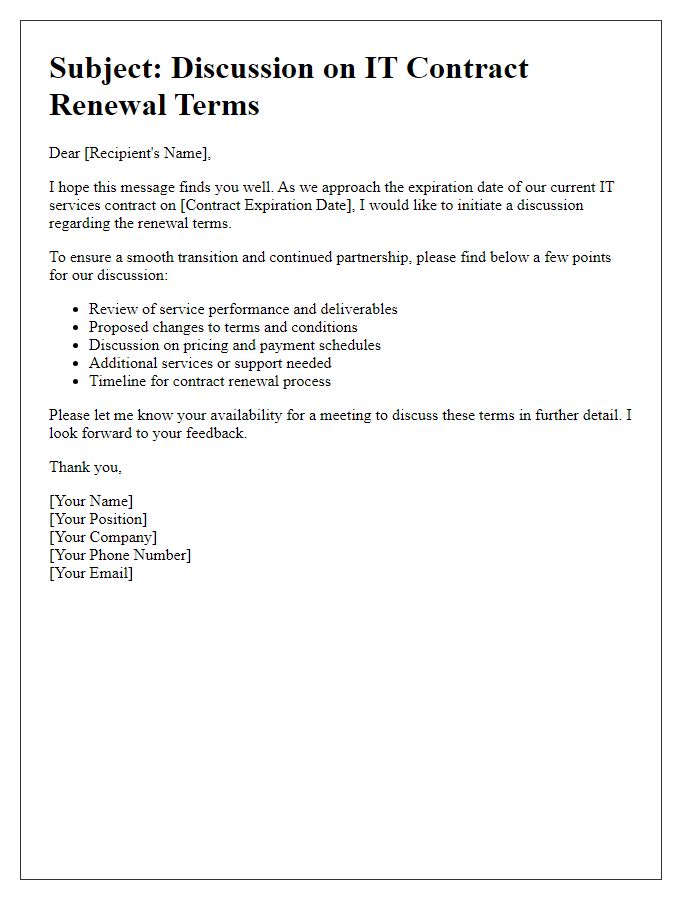
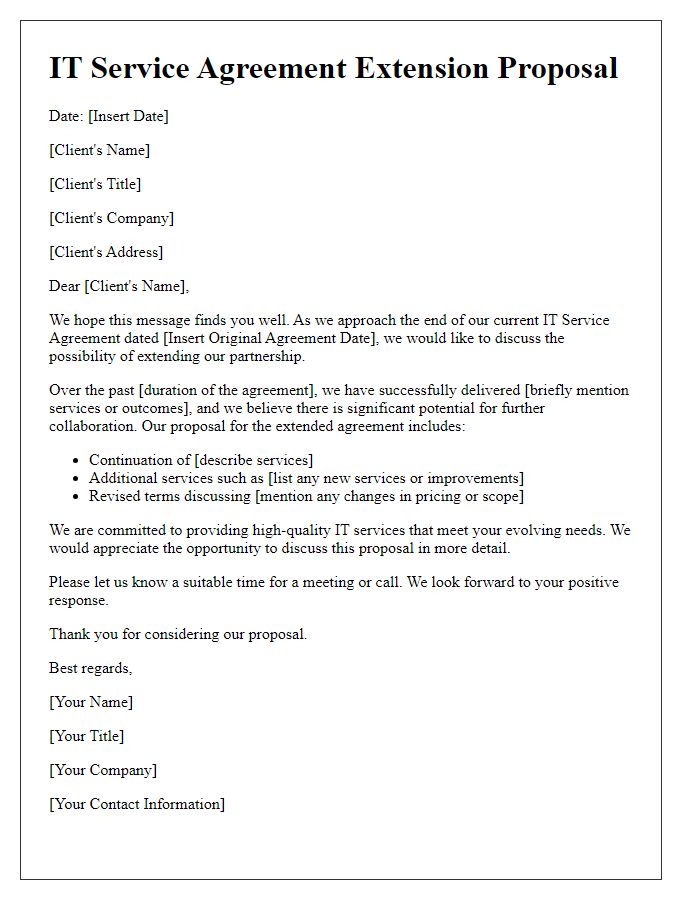
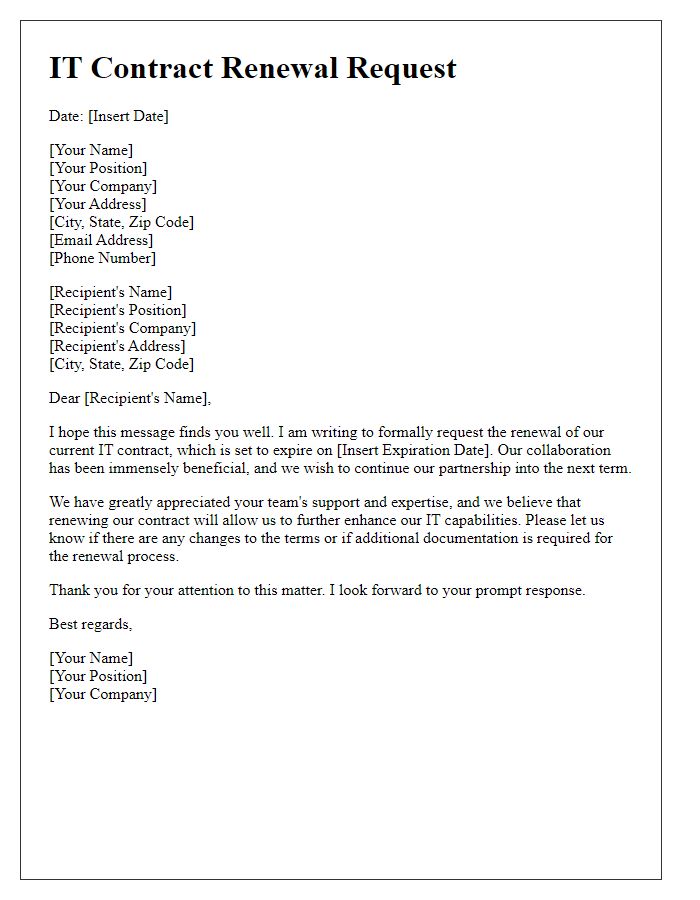
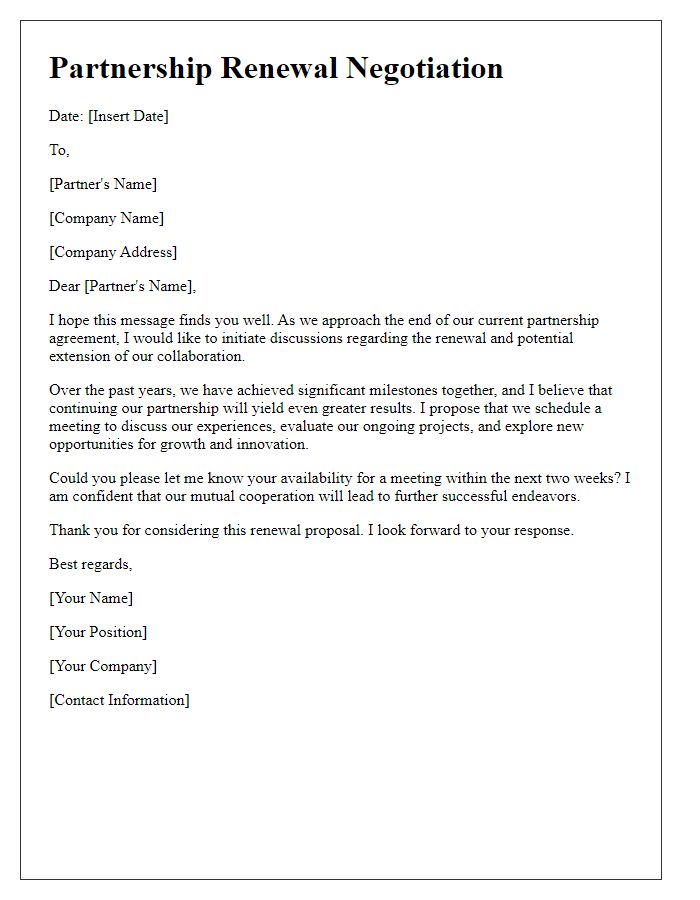
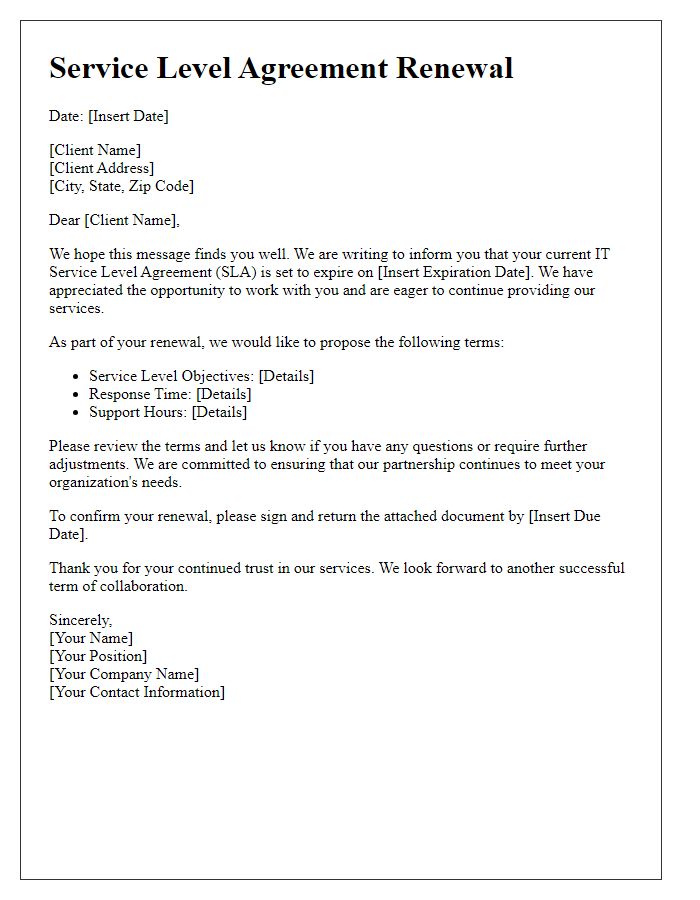
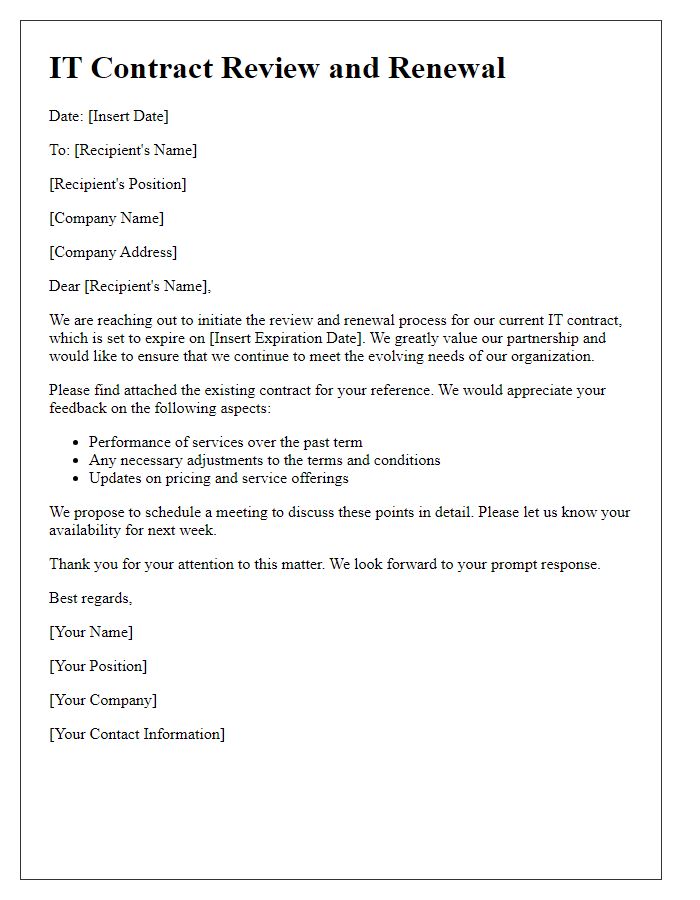
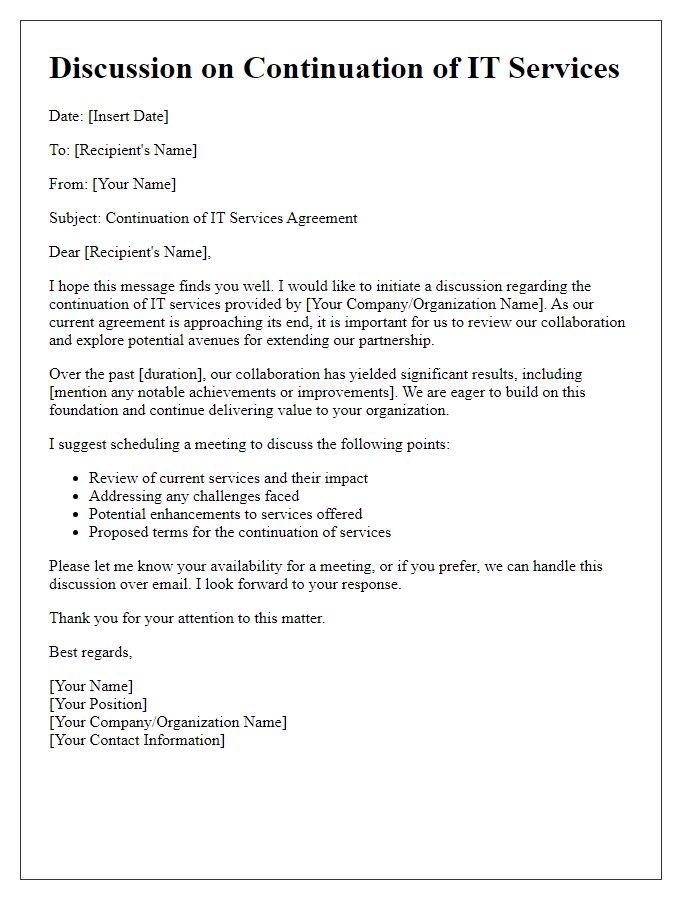
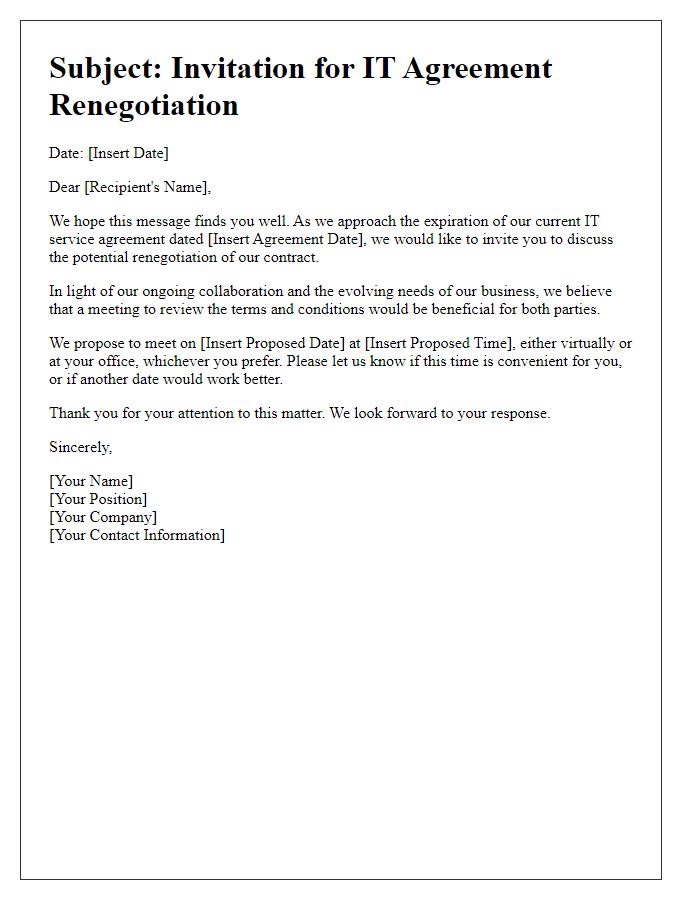
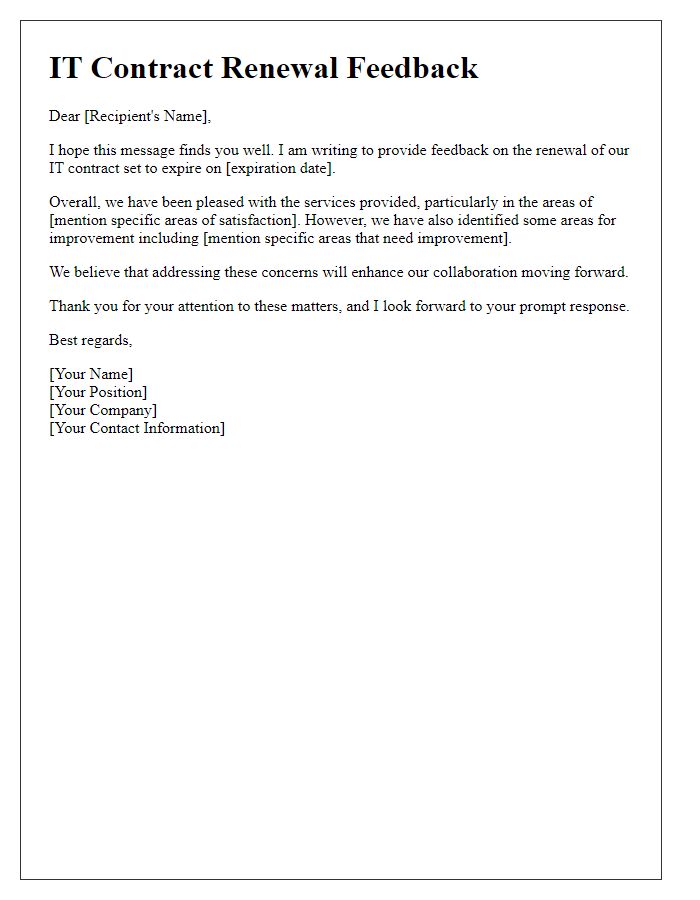
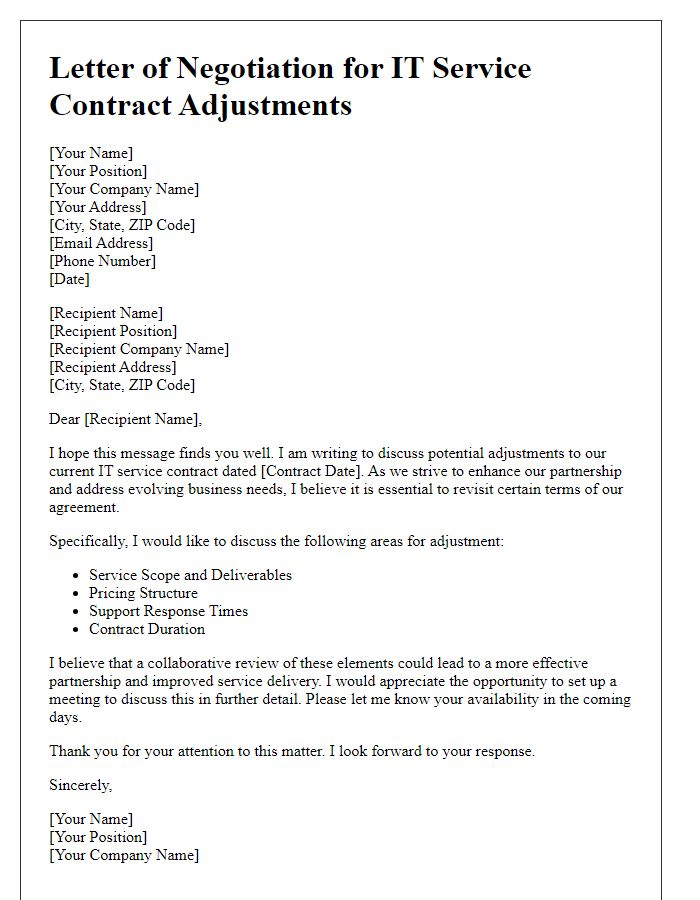

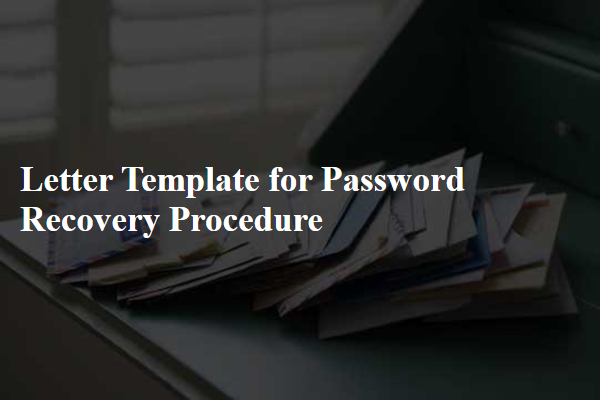
Comments